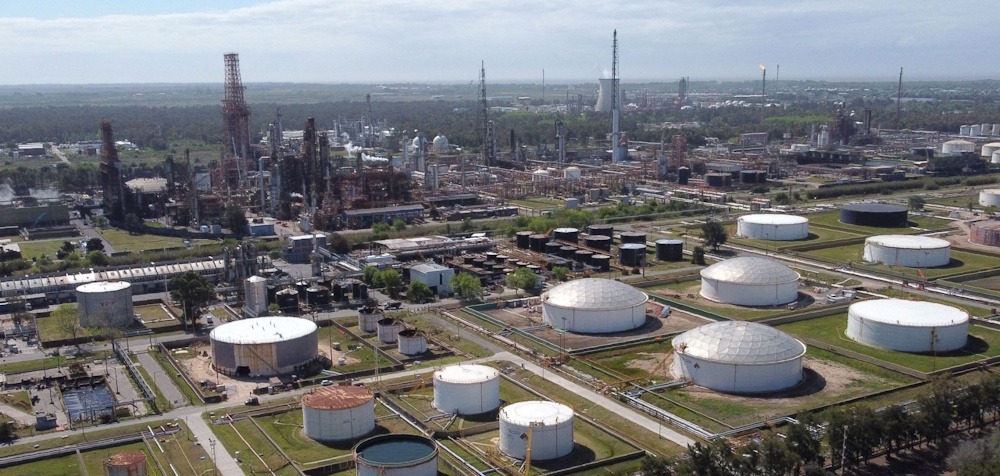President Javier Milei’s victory in the October midterms provided reassurance for numerous market sectors. Oil and gas emerge as significant beneficiaries, as La Libertad Avanza’s decisive victory has triggered a surge in corporate bonds. The companies within the sector exhibit a uniformly optimistic outlook. The majority are converging on the markets in search of investors following a period of stagnation in the months preceding the election, attributed to elevated country risk, which has resulted in prohibitive interest rates and exchange rate pressures. Vista Energy has recently confirmed a US$4.5 billion investment in Vaca Muerta, a shale oil and gas region located in the southern part of the country, amidst a wave of new project announcements from various entities. Analysts concur that the decline in country risk following the vote (from over 1,000 to approximately 600 basis points) is the primary catalyst for the boom. Lorenzo Sigaut Gaviria, an economist, characterized the midterms as a “turning point” in light of the circumstances leading up to the elections. “July, August, September, and October experienced a marked slowdown, characterized by considerable uncertainty, heightened risk, significant exchange rate pressures, and the liquidation of reserves by the National Treasury, the Central Bank, and even the U.S. Treasury,” he conveyed to the Herald.
A report indicated that, despite Argentina’s significant distance from achieving self-financing at reasonable rates—currently necessitating debt acquisition at over 10% in dollars—the reduction in country risk “is clearly a step in the right direction.” The report indicated that recent developments facilitated oil and gas companies in issuing corporate bonds, thereby securing the financing they had been seeking for several months. This week, Tecpetrol, YPF, and Pampa Energía secured US$1.7 billion in funding. TGS and Pluspetrol aimed to secure as much as US$500 million each. Excluding Pampa Energía, which operates beyond the oil and gas sector, the total would amount to US$1.25 billion since Milei’s victory in October. Sigaut Gaviria indicates that the oil and gas sector could issue over US$5 billion in corporate bonds starting Monday after the elections and continuing through the end of the year. The economist noted that Milei’s “resounding victory” signifies “governability, the possibility of passing laws in Congress like the budget, and then reforms.” “Thus, the current environment has led to a decompression, and it is evident that this cohort of companies that previously refrained from action is now capitalizing on the opportunity to issue [debt]. And that is the current observation — it appears to transition from insignificance to significance in an instant,” he added.
Juan José Carbajales highlighted an additional factor contributing to the optimism. He noted that the impending conclusion of the Incentive Regime for Large Investment in mid-2026 may be prompting companies to accelerate their plans and seek financing. YPF’s liquified natural gas plan involves the construction of six floating LNG facilities, which are specialized vessels designed to convert natural gas into LNG while at sea. Furthermore, domestic firms that acquired assets from foreign entities exiting the market, including Plus Petrol, will necessitate financing as well. “This appears to be merely the onset,” he stated. On Wednesday, oil and gas company Vista Energy declared a US$4.5 billion investment in Vaca Muerta. The objective is to enhance production by 60%, aiming for a total of 180,000 barrels of oil equivalent by 2028. The company has invested over US$ 6 billion in Argentina, positioning itself as the leading independent crude oil producer and the largest oil exporter in the country.
Vista Energy’s CEO, Miguel Galuccio, made the announcement during a meeting with investors. Galuccio, former CEO of state-owned oil and gas company YPF from 2012 to 2016, indicated that adjustments in taxes and regulations — integral to Milei’s agenda — are essential for Argentina to enhance its competitiveness with the United States. “Today, wells in the United States cost approximately 35% less than those in Vaca Muerta,” he stated. “If we truly aim to advance, addressing that structural agenda is imperative,” Galuccio remarked, noting that “the regulatory framework” lies outside the company’s purview. A potential elimination of export duties would be described as the “icing on the cake. If the taxes that increase costs by 30% are lowered, that implies greater investment, enhanced production, increased foreign currency, and additional job creation. To increase Argentina’s active rigs from 40 to 200, it is imperative to tackle that issue,” he added.

